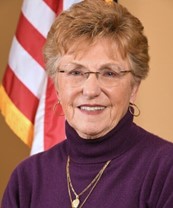Appalachian Regional Commission Invests in the Power of Partnerships to Fuel Economic Growth in Region with 15 Historically Black Colleges and Universities
April 17, 2023—Nashville, Tenn. — This week, representatives from more than 40 historically Black colleges and universities will convene with research leaders and engagement professionals from companies, nonprofits, government agencies, and other universities with a single purpose in mind: to build strong, long-lasting research partnerships. A $50,000 grant from the Appalachian Regional Commission (ARC) is funding travel and participation for 21 representatives from among the 15 HBCUs located within the Appalachian region.
HBCU Engage is co-hosted by three Nashville-based HBCUs: Tennessee State University, Fisk University, and Meharry Medical College. The event organizer is a nonprofit organization, UIDP, whose members include research-focused universities and companies around the globe. ARC’s grant was a natural fit for the engagement initiative that fuels new partnerships with HBCUs.
ARC is a local, federal, and state government partnership focused on economic development and cooperation among the 423 counties in the Appalachian region. Established by U.S. federal statute, it empowers the local partners to cooperate to break down the barriers to economic success across Appalachia. Most of its programs focus on economic growth and investment in collaborative projects.
“We’ve realized that Appalachia as a whole doesn’t have economic parity with the rest of the country. Minority communities have even less parity,” said Gayle Conelly Manchin, who has served as ARC’s federal co-chair since May 2021. Manchin is the first federal co-chair from West Virginia, in the heart of the region. She works directly with ARC’s 13 member state governors, state program managers, and a network of local development districts. Together they collaborate to build greater community capacity and strengthen economic growth throughout Appalachia, which increases the region’s ability to compete nationally and globally.
There’s a strong connection between higher education and opportunities for economic growth, and ARC has been connecting the dots to support its HBCUs in particular. “ARC is committed to amplifying and hearing the voices of Black Appalachians,” who comprise about 10% of the region’s population.
“My background is in education, and as an educator, I have found it odd that workforce development and education are two different worlds. In my mind, any kind of workforce development is education,” she said. “There is a lack of communication between our educational institutions and industry, but powerful economic results happen when business and education work hand in hand. Industry can define the skill sets needed, and the schools can revisit their curriculum to ensure they’re fulfilling those needs. When a business is hiring, it’s important to work together with higher education to ensure you’re inclusive and have given everyone access to the education and training they need.”
“I think we probably haven’t done as good a job as we should have,” she added. “But things are changing in a positive way because of efforts to bring focus to inequity and what we need to be doing differently.”
ARC funds a range of programs to support HBCU students and economic development in tandem. Since 2005, it has awarded $160,000 to more than 50 students in 10 schools through scholarships and internships, including the Joseph L. Palmer Scholarship.
Manchin said that ARC has entertained grant proposals aimed at heightening awareness of the inequity of the Black community.
“We need to bring people together to find the solutions, and we need to involve business,” she said. “If we have business and HBCUs involved in planning programs and curriculum, increasing diversity in the training and recruiting for these programs, and developing guidelines for hiring, we will see the landscape evolve. I think we’re getting there, and I’m optimistic that we will be able to invest funding to do some powerful work. But it has to be intentional, focused, and measurable.”
Manchin speaks of the potential to leverage the ARC region as a whole. Working cooperatively with representatives from every state in the region, ARC could serve as a platform to invest in economic development and growth opportunities that benefit 26 million people residing in the least economically strong counties in their respective states.
“If we think about ourselves as a region rather than a state, how much more powerful that would be,” she said. “When we bring all of our people together, we’re stronger together, united in the work we are doing in education, workforce training, and building the economy.”



